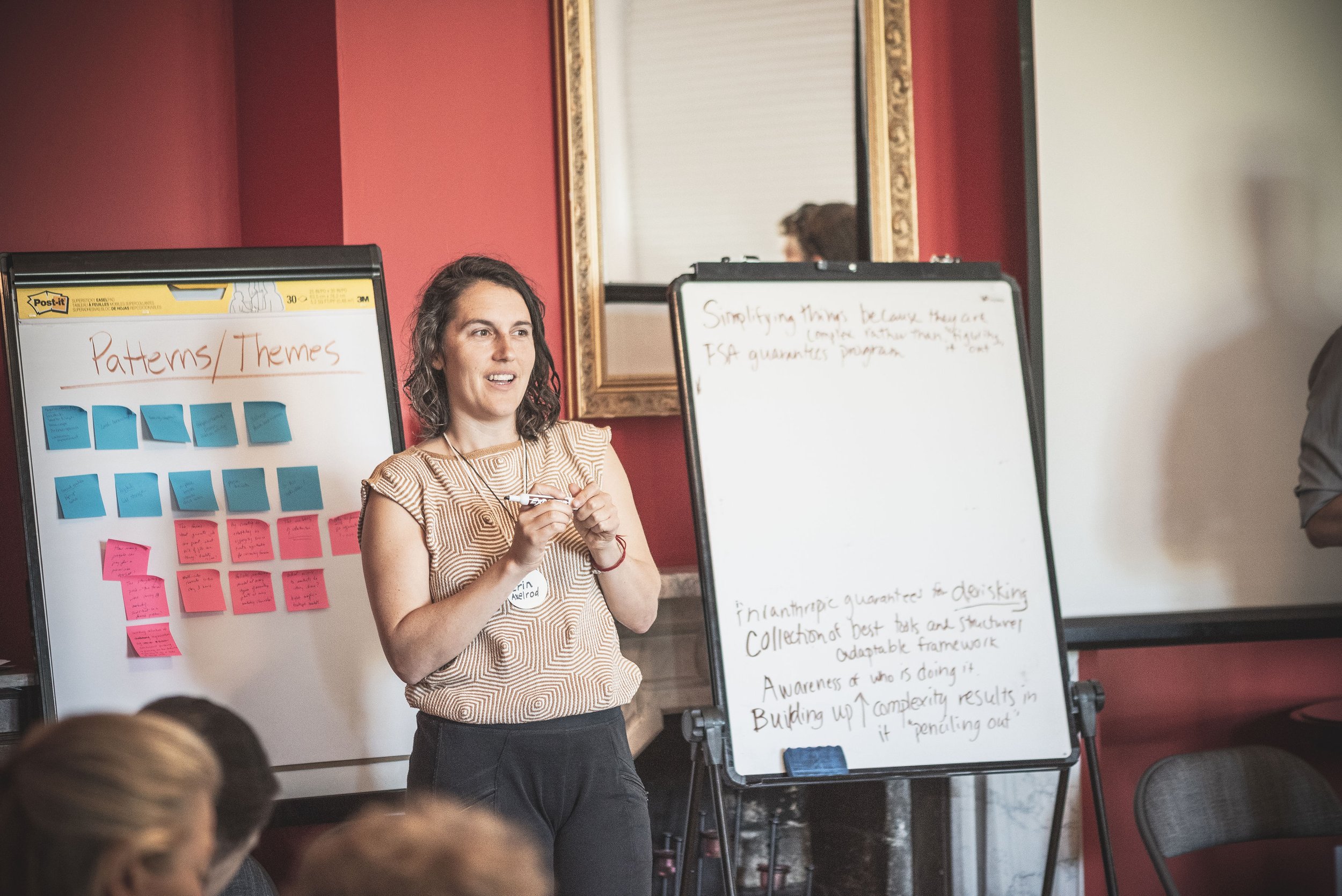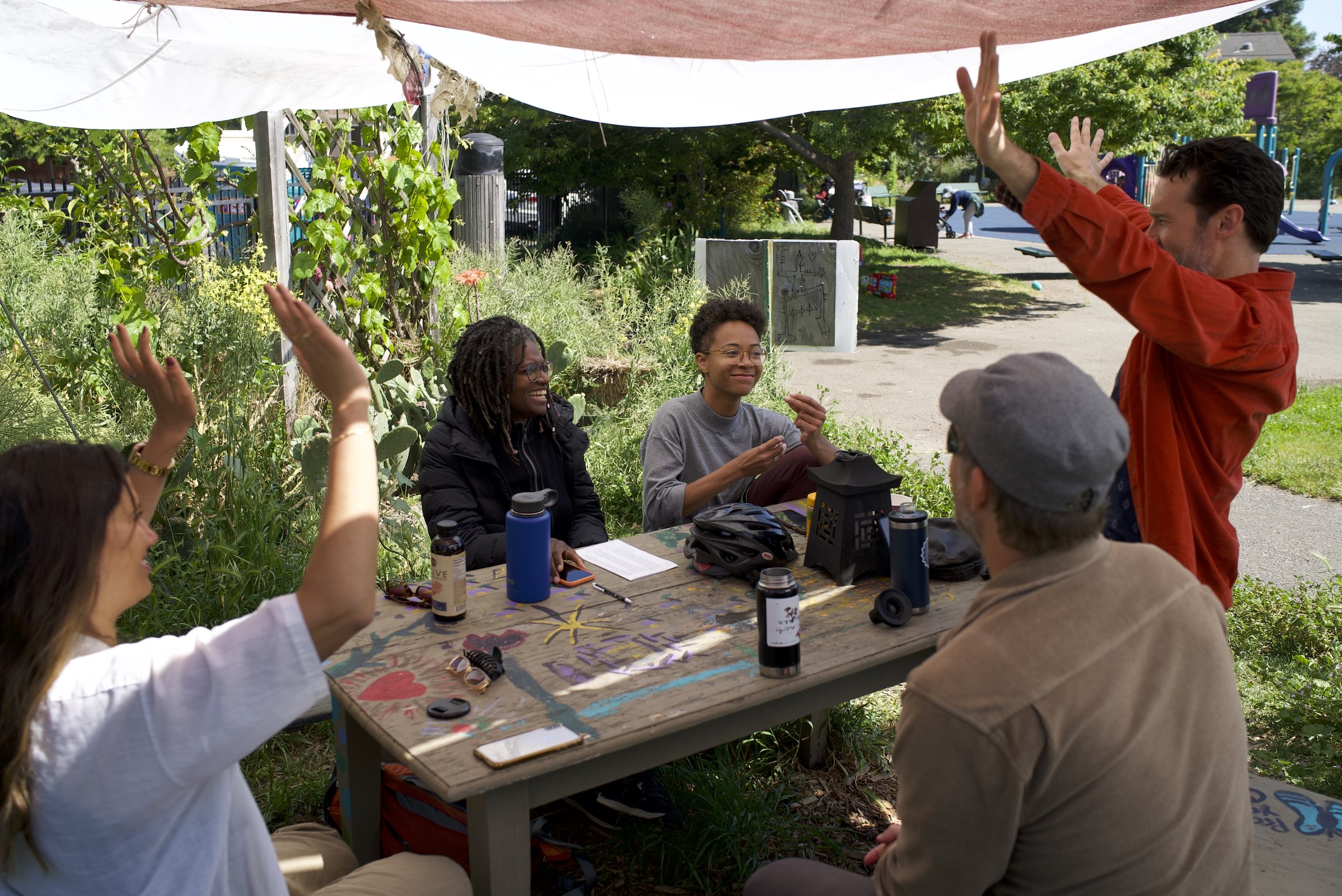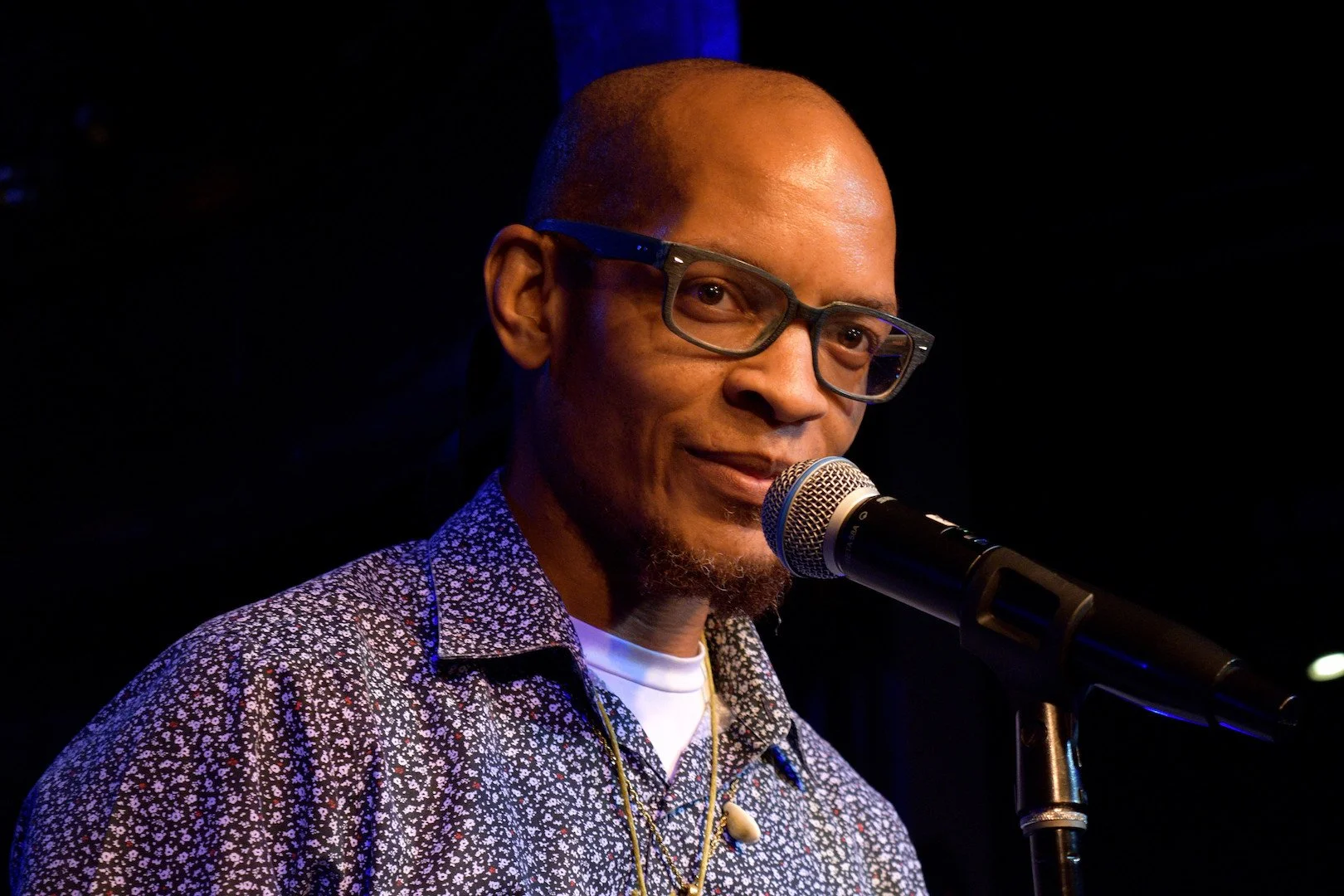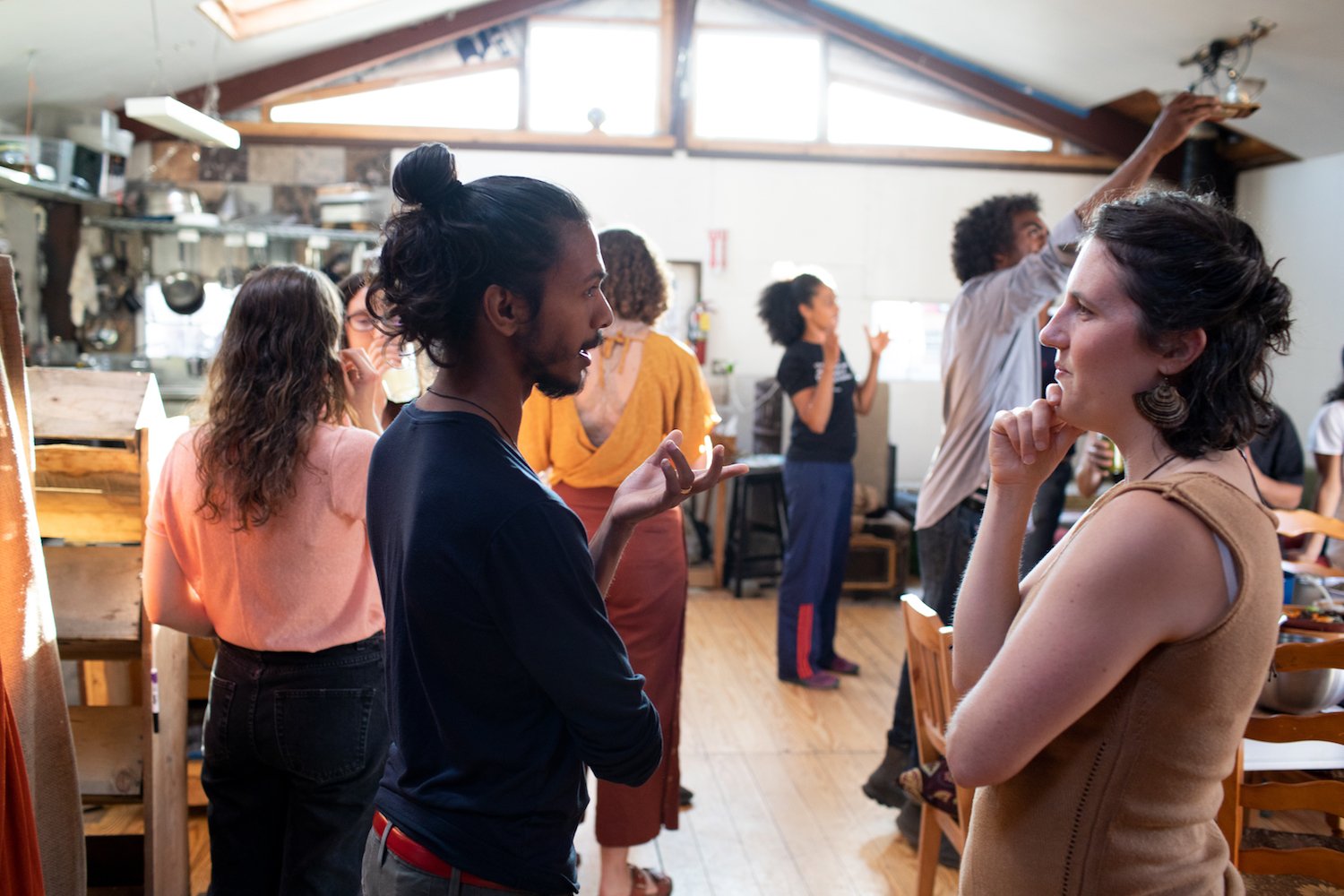Learn how solar baking has helped one entrepreneur in Kenya create a successful baking business and inspire others to do the same in our podcast with Joan Arwa Ogwang.
MBA Series Ep. 12 - Culture Pt. 1
Culture is one of the defining aspects of Next Economy organizations. The LIFT team discusses the role of values in distilling culture and the process of arriving at shared values within an organization.
MBA Series Ep. 11: Olivia Watkins: Black Farmer Fund and Closing The Racial Wealth Gap in the Food Industry
Social entrepreneur Olivia Watkins shares how Black Farmer Fund is working to close the racial wealth gap and create a financial institution that people can trust.
MBA Series (Ep.10) - Vision Alignment
Vision alignment is a critical factor when it comes to the success of a Next Economy endeavor. The LIFT team discusses how to deal with divergence when reaching a shared vision.
Jenny Stefanotti: Co-Creating a Next Society through Denizen
Jenny shares how Denizen is co-creating the idea of a Next society that has curiosity, generosity, diversity, integrity, humility, and accountability at its core.
MBA Series (Ep.9) - Mosa Tsay and the Groupmuse Foundation
Learn how Groupmuse helped musicians in the pandemic through job creation programs, fundraising, and facilitating a direct link between audience members and musicians during lockdown restrictions.
MBA Series (Ep.8) - Personal Strategies and Life Design
How do the personal choices we make for our lives and daily habits impact the larger community and the future of a better world? Learn how Next Economy life design principles can help align our lives with our vision for a more just society.
Ro Horton and Swan Keyes: UNtraining Cultural Conditioning
We discuss the far-reaching effects of cultural conditioning, white people's resistance to recognizing their racism, and the process of “UNtraining” racist programming.
Jorge Fontanez: B Corps as a Force for Change
Consumers need more from the companies and brands they support, and B Corps are paving the way. Learn more about the movement with the CEO of B Corp US & Canada, Jorge Fontanez.
MBA Series (Ep. 7) — Enterprise Structures and Legal Frameworks
The LIFT team discusses the legal and corporate tools that are available to organizations looking to create a meaningful difference, from B Corps to worker-owned cooperatives.
Amrita Wassan: Shifting Power Towards the Solidarity Economy
We cover Amrita's thoughts on what the transition to a better world could look like, and why they are accepting of the slow and iterative process that is necessary for real change.
MBA Series (Ep. 6) - Rachel Isreeli on the Transformative Power of Coops
Through the utilization of tools such as base building and organizational development, cooperatives can combat the forces of white supremacy, patriarchy, and colonialism that have dominated our society for so long.
Pegi Eyers: Reclaiming Your Ancestral Wisdom Traditions
For many people connecting with their heritage can be a painful process, and the journey looks different for everyone. Pegi explains what one can expect from the process and reflects on why so many people struggle to acknowledge and confront the enormity of white supremacy.
MBA Series (Ep. 5) - Next Economy Principles II
We have developed these core principles over the course of a decade of working with hundreds of social enterprises, nonprofits, and other organizations to help guide the emergent next economy that we are co-creating.
Derek Razo: Patagonia's Purpose Trust
In our chat we get into the particulars of stewardship models, and their two central components of self-governance and 'profit serving purpose'.
MBA Series (Ep. 4) - Karla Brollier on the Climate Justice Initiative
Karla talks about how we can truly bolster the livelihoods of indigenous communities, the challenges that seem to continually face philanthropic work, facilitating a participatory approach to change, and why she feels policy is the fundamental route to progress.
Lynn Johnson: Hella Social Impact
Real change is about more than just talk and requires a committed practice from organizations and individuals. Hella Social Impact is a consultancy that is dedicated to facilitating the process of helping brands and organizations to show up authentically and impactfully for racial justice.
MBA Series (Ep. 3) - Next Economy Principles I
In focus today are how businesses can meet basic needs, create shared ownership, aim for democratic structures, support local community, and perpetuate learning and problem-solving.
Jeff Clements: How People, Not Money, can Govern America
Subscribe to Next Economy Now on Apple Podcasts, Spotify, Pandora, Google Podcasts, YouTube, or wherever you find your podcasts.
Corporations, wealthy donors, and special interest groups have always had a disproportionate impact on elections, but their sway has dramatically increased since the Supreme Court’s Citizens United decision of 2010 with negative repercussions for the fight against political corruption and American democracy itself.
Today’s guest is Jeff Clements, who serves as President of American Promise, a fast-growing, cross-partisan network of Americans working to win the next amendment to the US Constitution so that people, not money, govern America. Jeff has practiced law for three decades in public service and private practice and is the author of Corporations Are Not People: Reclaiming Democracy From Big Money and Global Corporations, a must-read for anyone who is sick and tired of the reign of corporate super-citizens in American politics.
In this discussion, Jeff outlines the strange history of the Citizens United ruling, the ongoing destructive effects that it is having, and the growing movement to reverse it. We take a look at the damage done to America and its people by the concentrated political power of billionaires and global corporations that spend money to dominate debate and influence election outcomes. We also explore some of the creative strategies and tools that the American people are using to renew democracy and curb unbalanced corporate power. Make sure to tune in today to learn more!
---
Key Points From This Episode:
Insight into Jeff’s legal background and what led him to American Promise. [0:03:24]
Examining the broad support for a bipartisan constitutional amendment to get big money out of politics and restore democratic power to the people. [0:08:55]
A non-partisan look at the massive, multibillion dollar operation that we call elections. [0:14:06]
The real threat of oligarchy as the ‘donor class’ becomes increasingly concentrated. [0:20:18]
Attainable timelines and outcomes for American Promise that transcend politics. [0:22:24]
Writing the 28th Amendment and American Promise’s strategy for earning support. [0:26:45]
How to join American Promise’s network of civically responsible business leaders. [0:32:18]
Understanding why we require a systemic solution for a systemic problem. [0:37:41]
The deeper significance of working toward a shared bipartisan vision for America. [0:38:53]
---
Tweetables:
“Free speech [and] equal representation in our political system are both values that belong to all Americans. We have the ability and the right to enact reasonable, effective regulations of corporate money and other money in elections.” — @ClementsJeff [0:08:17]
“In a very divided time, you have to unite republicans, democrats, independents. You have to get wins along the way. [You have to] build massive pressure to overcome the immense obstacle that is Congress; and we are doing that. We’re doing all those things.” — @ClementsJeff [0:13:40]
“The level of cynicism and nastiness of this stuff is not just to be bemoaned because it’s ridiculous or offensive. It actually has an impact on our political system.” — @ClementsJeff [0:19:28]
“The concentration of the money is as big a problem as the amount and how it’s spent.” — @ClementsJeff [0:22:19]
“Some of our most impactful advocates are local and national businesspeople who are managing their businesses for impact and improvement of environment and society.” — @ClementsJeff [0:33:03]
---
Links Mentioned in Today’s Episode:
Jeff Clements on LinkedIn: https://www.linkedin.com/in/jeff-clements/
Jeff Clements on Twitter: https://twitter.com/clementsjeff
Corporations Are Not People: https://www.indiebound.org/book/9781626562103
American Promise: https://americanpromise.net/
American Promise Business Network: https://americanpromise.net/business-network/
National Citizen Leadership Conference: https://nclc.info/
High Conflict: https://www.indiebound.org/book/9781982128562
---
LIFT Economy Newsletter
Join 8,000+ subscribers and get our free 60-point business design checklist—plus monthly tips, advice, and resources to help you build the Next Economy: https://lifteconomy.com/newsletter
---
Next Economy MBA
This episode is brought to you by the Next Economy MBA.
What would a business education look like if it was completely redesigned for the benefit of all life? This is why the team at LIFT Economy created the Next Economy MBA (https://lifteconomy.com/mba).
The Next Economy MBA is a nine-month online course for folks who want to learn key business fundamentals (e.g. vision, culture, strategy, and operations) from an equitable, inclusive, and regenerative perspective.
Join the growing network of 350+ alumni who have been exposed to new solutions, learned essential business skills, and joined a lifelong peer group that is catalyzing a global shift towards an economy that works for all life.
Learn more at https://lifteconomy.com/mba.
---
Show Notes + Other Links
For detailed show notes and interviews with past guests, please visit https://lifteconomy.com/podcast.
If you enjoy the podcast, would you please consider leaving a short review on Apple Podcasts/iTunes? It really helps expose these ideas to new listeners: https://bit.ly/nexteconomynow
Twitter: https://twitter.com/LIFTEconomy
Instagram: https://instagram.com/lifteconomy/
Facebook: https://facebook.com/LIFTEconomy/
YouTube: https://youtube.com/c/Lifteconomy
Music by Chris Zabriskie: https://chriszabriskie.com/
MBA Series (Ep. 2) - Intro to the Next Economy II
Subscribe to Next Economy Now on Apple Podcasts, Spotify, Pandora, Google Podcasts, YouTube, or wherever you find podcasts.
We may not be to blame for climate change, systemic racism, and damaging levels of debt, but we are responsible for doing whatever we can to turn the tide on these issues that currently plague our world.
Over the course of 18 episodes, we are going to discuss the key themes that we explore in our Next Economy MBA program. This program is focused on educating the people who are going to drive the Next Economy forward by creating systems that benefit all life. With people like you, there is hope for the future of our species on this planet.
In this episode of the MBA series, we delve into the problem with interest-bearing debt, why access (not availability) is the reason that 800 million people are chronically hungry, and how historical systems perpetuate inequalities across the world today, as well as why the Genuine Progress Indicator is a better measure of progress than Gross Domestic Product. We hope you’ll join us!
Key Points From This Episode:
Exploring the destructive nature of our relationship with money. [0:03:35]
Debunking the myth that there is a scarcity of food in the world today. [0:07:39]
Examples of how a scarcity mindset manifests itself. [0:10:56]
The benefits of a shorter workweek. [0:11:55]
How historical systems perpetuate current inequalities. [0:13:56]
Delving into the fallacy of progress. [0:22:03]
Surprising factors that lead to the increase of GDP. [0:23:18]
Genuine Progress Indicator; a more holistic measure of progress and an alternative to GDP. [0:24:36]
The limited power of money and the unlimited power of human connection. [0:28:03]
---
Tweetables:
“Before you can talk about what works, you have to have a shared idea of what perspective you’re coming from and your shared values.” — Phoenix Soleil [0:02:00]
“One of the core problems around how the economy operates right now is that money is the primary or, in some cases, the exclusive way that people meet their human needs.” — Erin Axelrod [0:03:42]
“Creating debt creates this artificial need for continual growth.” — Erin Axelrod [0:06:13]
“What is chronically keeping 800 million people hungry today is not a lack of calories; it’s our economic systems and distribution systems and the fact that money is the roadblock to accessing calories.” — Erin Axelrod [0:08:33]
“If you’re constantly looking at things from an individual point of view and you don’t look at the history and forces of the culture and the politics and how they work together to create conditions, then you’re not going to see the whole picture.” — Phoenix Soleil [0:21:03]
---
Links Mentioned in Today’s Episode:
Next Economy MBA: https://lifteconomy.com/mba
Wasted! The Story of Food Waste: https://www.imdb.com/title/tt6207096/
---
LIFT Economy Newsletter
Join 8,000+ subscribers and get our free 60-point business design checklist—plus monthly tips, advice, and resources to help you build the Next Economy: https://lifteconomy.com/newsletter
---
Next Economy MBA
This episode is brought to you by the Next Economy MBA.
What would a business education look like if it was completely redesigned for the benefit of all life? This is why the team at LIFT Economy created the Next Economy MBA (https://lifteconomy.com/mba).
The Next Economy MBA is a nine-month online course for folks who want to learn key business fundamentals (e.g., vision, culture, strategy, and operations) from an equitable, inclusive, and regenerative perspective.
Join the growing network of 350+ alumni who have been exposed to new solutions, learned essential business skills, and joined a lifelong peer group that is catalyzing a global shift towards an economy that works for all life.
Learn more at https://lifteconomy.com/mba.
---
Show Notes + Other Links
For detailed show notes and interviews with past guests, please visit https://lifteconomy.com/podcast.
If you enjoy the podcast, would you please consider leaving a short review on Apple Podcasts/iTunes? It really helps expose these ideas to new listeners: https://bit.ly/nexteconomynow
Twitter: https://twitter.com/LIFTEconomy
Instagram: https://instagram.com/lifteconomy/
Facebook: https://facebook.com/LIFTEconomy/
YouTube: https://youtube.com/c/Lifteconomy
Music by Chris Zabriskie: https://chriszabriskie.com/
---




























